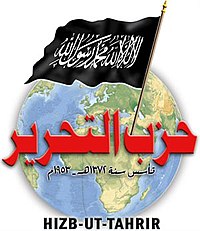Government in fresh attempt impose legal restrictions on Hizb ut-Tahrir
 The Independent reports on the renewal of attempts by the Conservative party to tackle Hizb ut-Tahrir following the killing of Drummer Lee Rigby.
The Independent reports on the renewal of attempts by the Conservative party to tackle Hizb ut-Tahrir following the killing of Drummer Lee Rigby.
Proscribing the group has been on the Conservative agenda since the party’s days in opposition. It has thus far failed to apply the law on proscribing groups because Hizb ut Tahrir’s activities do not fall foul of the requisite conditions on advocating terrorism. The Independent notes that the Conservatives are considering moves that fall short of an outright ban such as “bann[ing] from holding meetings in public buildings such as universities”.
The Independent notes that although ministers have been shown a report that discounts claims that Hizb ut-Tahrir acts as a “conveyor belt” to violent extremism, the government is still preparing policies that will address the need to “challenge extremist rhetoric at the same time as defending principles of free speech”.
The news hails from the parliamentary debate of last week during which the security minister, James Brokenshire, announced the banning of groups “Jama’atu Ahlis Sunna Lidda’awati wal-Jihad, more widely known as Boko Haram, and Minbar Ansar Deen, also known as Ansar al-Sharia UK”.
Responding to questions raised on the banning of Hizb ut Tahrir, the security minister replied:
“That organisation [Hizb ut Tahrir] is not proscribed, and proscription could be considered only when the Home Secretary believed it to be involved in terrorism, as defined by the Terrorism Act 2000. However, I want to make it clear to the House that the Government have significant concerns about Hizb ut-Tahrir, and we will continue to monitor its activities closely. Such groups are not free to spread hatred and incite violence as they please. The police have comprehensive powers to take action under the criminal law to deal with people who incite hatred, and they will do so. We will seek to ensure that Hizb ut-Tahrir and groups like it cannot operate without challenge in public places in this country. We will not tolerate secret meetings behind closed doors on premises funded by the taxpayer, and we will ensure that civic organisations are made well aware of Hizb ut-Tahrir and groups like it, and of the names under which they operate and the ways in which they go about their business. It would not be right for me to comment on individual cases, but we keep all organisations of concern under review.”
The security minister, in a separate written question on the subject of banning HT, wrote:
“As outlined in the Prevent Strategy 2011 we believe there is unambiguous evidence to indicate that some extremist organisations, including Hizb-ut-Tahrir (HuT), target specific universities and colleges (notably those with a large number of Muslim students) with the objective of influencing and recruiting students to support their agenda. We are aware of a small number of Universities in the UK where HuT have an influence.
“We keep the threat of extremism on university campuses under review, and the Department for Business, Innovation and Skills works with Universities and Student Unions to ensure they are aware of the risks and are given support, advice and guidance to help them manage these. The recently appointed Prevent regional co-ordinators for Further and Higher Educational institutions are identifying pockets of extremist ideology in universities, and helping to equip institutions and student groups to challenge those ideas.”
The Government’s efforts to challenge extremist rhetoric on campuses was also touched upon in the testimony of Charles Farr, Director of the Office for Security and Counter-Terrorism, in his evidence to the Home Affairs select committee inquiry into the Roots of Violent Radicalisation last year. Farr said of the need to challenge non-violent extremism:
“It is about ensuring a broad spectrum of speakers rather than a consistent series of speakers representing one particular point of view. It is about ensuring that it is open to everyone and it is not, in effect, a closed meeting, which is what many of them are. It is about, in some cases, ensuring that there is more than one speaker speaking, so that people hear a varied and broad range of views rather than simply one.”
But the section of Farr’s evidence which deals directly with the question of why Hizb ut Tahrir is not banned has been redacted. You can read the available transcript here.
Source : iengage.org.uk
